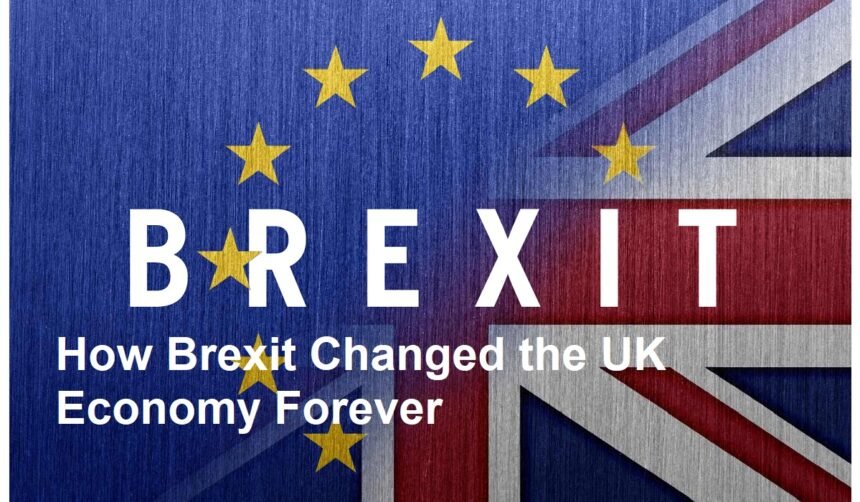Introduction
When the UK voted to leave the European Union in 2016, few realized just how deeply it would reshape the UK economy. Nearly a decade later, we’re beginning to see the long-term effects. From shifting trade rules to changes in the labor market, Brexit has touched nearly every corner of British life.
So, what does this mean for businesses, workers, and everyday consumers? Let’s break down the Brexit impact and see what lies ahead for British business.
Understanding Brexit’s Economic Impact
A Quick Recap
Brexit officially took effect in January 2020, ending nearly 50 years of EU membership. The move promised more independence, but it also meant losing frictionless access to Europe’s single market—something that had fueled UK economy growth for decades.
Why It Matters
The EU was the UK’s biggest trading partner. Leaving created new barriers: customs checks, paperwork, and regulatory differences. These hurdles reshaped how goods and services move across borders, directly affecting British business.
Trade After Brexit
New Rules for Businesses
Before Brexit, UK firms could sell goods and services across Europe with minimal restrictions. Now, they face tariffs in some sectors, customs delays, and higher costs. For small and medium-sized businesses, this has been especially tough.
The Export Challenge
UK exports to the EU dropped sharply in the first year after Brexit. Although some recovery has occurred, the numbers are still weaker compared to pre-Brexit trade levels. Industries like fishing, agriculture, and manufacturing have felt the hardest hit.
Import Costs Rising
Imports also became more expensive due to paperwork and border checks. For everyday consumers, this often translates into higher prices on supermarket shelves—a clear Brexit impact on daily life.
The Labor Market and Workforce Shifts
Decline in EU Workers
One major effect of Brexit was the reduction in EU workers coming to the UK. Industries like hospitality, agriculture, and healthcare, which heavily relied on migrant workers, now face staff shortages.
Skills Gap
This has created a growing skills gap. Many British businesses are struggling to find the right talent, slowing down productivity and increasing labor costs.
Opportunities for Local Workforce
On the flip side, Brexit has encouraged companies to invest more in training UK-based employees. While this may benefit local workers in the long run, it’s a slower process.
The Financial Sector and London’s Role
London vs. Europe
Before Brexit, London was Europe’s financial hub. Many global banks and financial institutions were headquartered there. After Brexit, some companies shifted operations to cities like Frankfurt, Paris, and Amsterdam to maintain EU access.
Resilience of the City
Despite these changes, London remains a powerful financial center. The UK economy still benefits from strong banking, insurance, and investment sectors. But the competition from EU cities has grown, and the UK must continuously innovate to keep its edge.
British Business: Challenges and Adaptation
Rising Costs
For many British businesses, Brexit brought higher costs: compliance fees, customs checks, and new trade regulations. Small businesses, in particular, have struggled to absorb these changes.
Supply Chain Adjustments
Some companies have shifted supply chains away from the EU, exploring new partnerships in Asia, North America, and Africa. While this diversification brings opportunities, it also requires significant adjustments.
Innovation and Resilience
Interestingly, Brexit has also sparked innovation. Businesses are finding creative ways to adapt, such as embracing digital trade solutions or focusing on niche markets outside Europe.
Everyday Life in the Post-Brexit UK Economy
Prices at the Supermarket
Shoppers quickly noticed the Brexit impact when prices on food, wine, and household goods rose due to higher import costs. Inflation trends have also been influenced by these changes.
Travel and Tourism
UK citizens now face stricter rules when traveling to the EU, while European tourists visiting Britain also encounter more bureaucracy. This has affected tourism and hospitality, though demand remains strong.
Property and Investment
Foreign investors still see the UK as attractive, but uncertainty around trade and regulations has slowed property and business investments in some sectors.
Practical Tips for Businesses and Investors
1. Diversify Trade Partners
Companies should reduce reliance on the EU by exploring markets in Asia-Pacific, North America, or emerging economies. Diversification can cushion against European market volatility.
2. Embrace Technology
Digital trade platforms and automation can streamline customs procedures, cutting down costs and delays.
3. Invest in Local Talent
With fewer EU workers, investing in apprenticeships, training, and reskilling local employees is essential. This not only fills the skills gap but also builds long-term resilience.
4. Stay Informed on Regulations
Rules and agreements continue to evolve. Businesses that stay updated on changing trade and labor laws are better prepared to adapt.
Looking Ahead: The Future of the UK Economy
Long-Term Opportunities
Brexit forced the UK to rethink its global role. New trade agreements with countries like Australia, Japan, and potentially the US could open fresh opportunities for British businesses.
Challenges Remain
However, challenges like slower trade with Europe, labor shortages, and inflation pressures still weigh on the UK economy. The real test lies in how quickly and effectively the UK adapts.
A Resilient Outlook
If the UK leverages its strengths—finance, innovation, education, and global networks—it can not only survive but thrive in the post-Brexit world.
Conclusion
Brexit has permanently changed the UK economy. From the Brexit impact on trade and labor to the pressures on British business, the challenges are real. But with every challenge comes opportunity. By embracing innovation, exploring new markets, and investing in talent, the UK can carve out a new role on the global stage.












